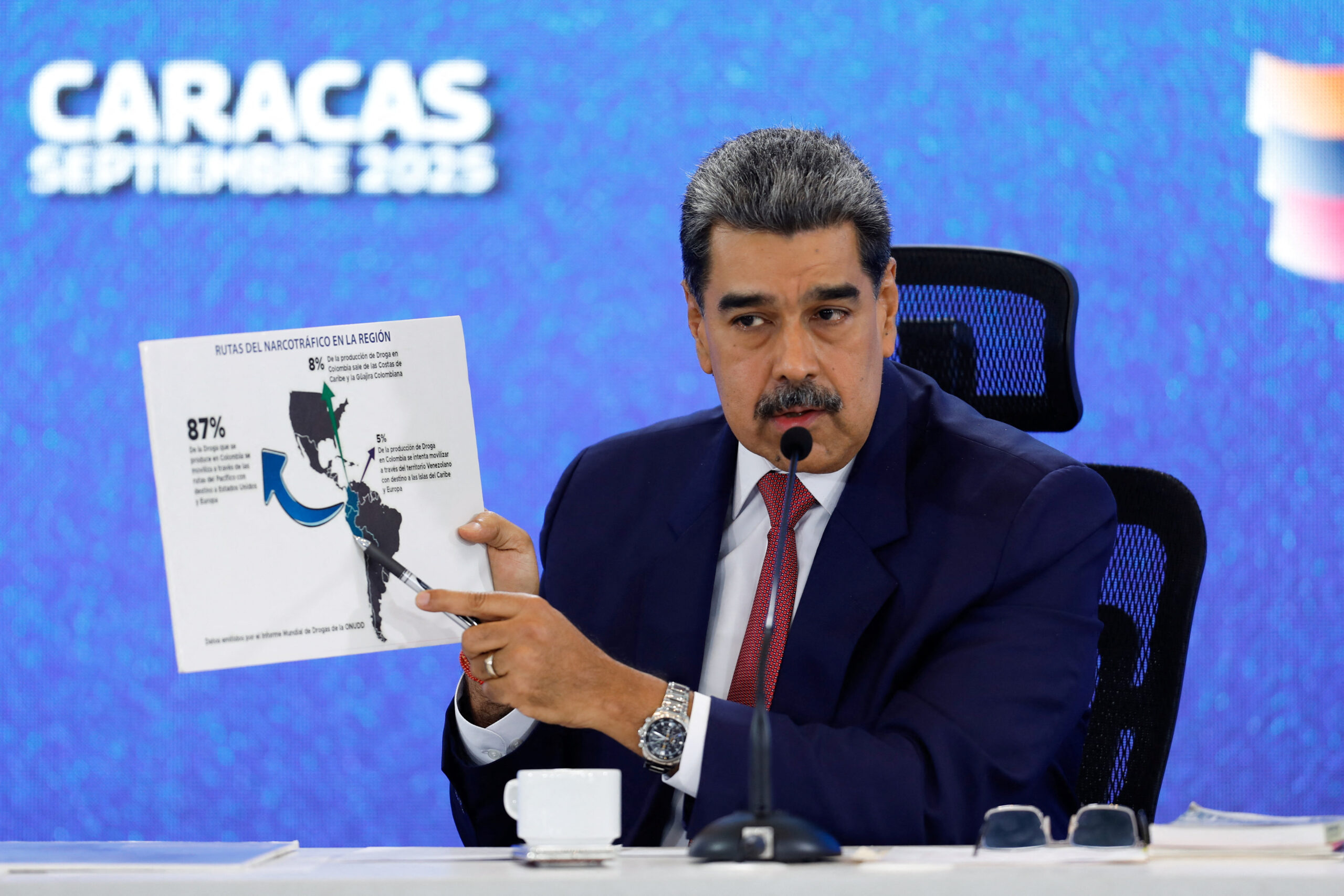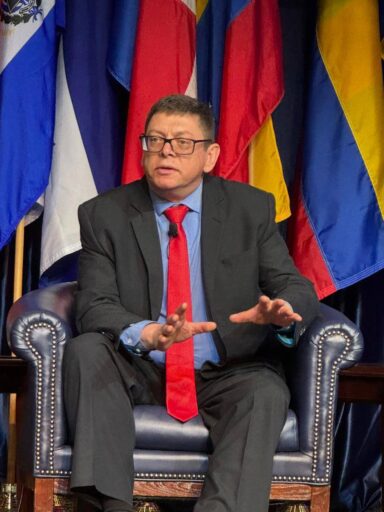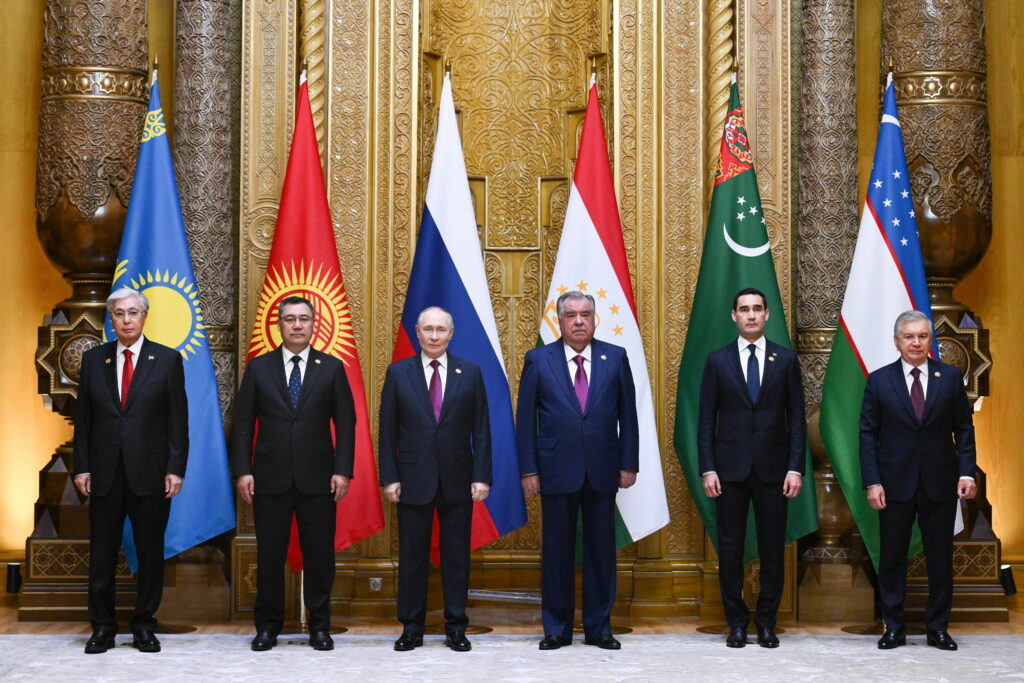Relations between the United States and Venezuela are entering a new phase of tension that could radically alter regional dynamics. A key factor in this is drug trafficking. Over the years of Nicolás Maduro’s rule, the shadow economy has become one of the main pillars of the regime’s resilience. The Russian factor also remains significant: Moscow, as a strategic partner of Caracas, may, as it did a few years ago, attempt to exploit the situation in Venezuela to project its influence in the Western Hemisphere.
The Unsinkable Maduro
The news that U.S. forces sank a Venezuelan vessel carrying drugs carries particular symbolic weight. Despite a catastrophic economic decline (a GDP drop of over 75% since 2014), hyperinflation, and mass migration (over 7 million people, according to UN data for 2024), Nicolás Maduro’s regime appears unsinkable: no matter the challenges—sanctions, crises, international pressure—he consistently emerges unscathed. Hopes for change tied to figures like Juan Guaidó in 2019 and Edmundo González in 2024 have not materialized, demonstrating Maduro’s ability to maintain control. In this context, strikes against drug trafficking channels are seen as an attempt to undermine the illusion of the Venezuelan regime’s invulnerability, as drug trafficking is one of the systemic factors ensuring the regime’s political survival.
Numerous reports from international organizations and journalistic investigations have pointed to close ties between elements of Venezuela’s Armed Forces and drug networks. What may have initially been tolerance or negligence has evolved into a symbiosis: evidence suggests that security forces (or at least parts of them), tasked with combating organized crime, have become its direct beneficiaries. The so-called «Cartel of the Suns«—a term referring to the insignia of Venezuelan generals—symbolizes this reality. Strictly speaking, the «Cartel of the Suns» is a media construct rather than a single centralized mafia cartel, but there is ample evidence confirming connections between state security forces and various organized criminal groups.
The paradox lies in the fact that, while the Maduro government officially condemns the U.S. as an interventionist empire, in practice, the regime’s stability depends on a shadow economy that fuels the global drug market. In 2023, the volume of cocaine transiting through Venezuela reached approximately 639 tons, with gross revenues from the drug trade in 2024 potentially exceeding $ 8.2 billion, based on wholesale cocaine prices in the Caribbean and Central American markets. These calculations are detailed in a study by Transparencia Venezuela en el Exilio, which draws on data from the UN Office on Drugs and Crime (UNODC) and the U.S. Drug Enforcement Administration (DEA). According to the DEA, about 24% of the world’s cocaine supply passes through Venezuela. For comparison, Reuters reports that export sales of oil by the state-owned oil and gas company PDVSA amounted to $ 17.52 billion in 2024, meaning drug trafficking revenues, as calculated by Transparencia, account for nearly half of oil-related foreign exchange earnings. This creates a vicious cycle: no one in Venezuela is seriously prepared to combat drug trafficking, as doing so would equate to dismantling one of the key pillars of political power.
Venezuela is not only a country governed by an authoritarian regime but also a state where the logic of drug trafficking is deeply intertwined with the logic of power. This combination explains why, despite a humanitarian crisis, international sanctions, and mass emigration, the regime remains resilient. Even a complete halt to drug trafficking through Venezuela would not lead to an immediate collapse of the regime. First, drug networks are transnational and highly adaptable, making them difficult to dismantle overnight. Second, the regime has other sources of financing, and oil can still be sold under sanctions. However, a drastic reduction in drug revenues would deprive the regime of a critical tool that provides hard currency, secures the loyalty of certain military factions, and integrates Venezuela into transnational illicit networks.
Trump, Urgency, and Domestic Politics
For Donald Trump, who may face pressure due to unpopular domestic decisions and international setbacks ahead of the U.S. midterm elections, the issue of drug trafficking is particularly pressing. In American political discourse, especially during election periods, the fight against drugs is traditionally seen as directly tied to citizens’ everyday concerns: street safety, the state of the healthcare system, and border control.
For most Americans in 2025, the problem of illegal drugs remains relevant. Failures in Trump’s policies regarding conflicts in Palestine or Ukraine, while eliciting sympathy, are not perceived as directly affecting the daily lives of average U.S. citizens. These can be partially «offset» by successes on the domestic front. This creates a need for quick and impactful solutions. Trump urgently needs to demonstrate results to the electorate that can be presented as proof of his toughness and leadership qualities. In this context, Venezuela is too tempting a target to ignore: a large-scale operation against drug trafficking could weaken Maduro’s regime and send a signal to the entire Latin American and Caribbean region about Washington’s firm stance. Such a move would bolster the image of the U.S. as a power maintaining its leadership role in the Western Hemisphere (despite its authority being shaken by China’s growing influence).
The main dilemma is that any misstep could lead to unpredictable consequences, potentially negating the anticipated benefits. A miscalculation could manifest, for example, in a poorly planned military operation targeting alleged drug trafficking hubs in Venezuela, which might inadvertently strike civilian infrastructure used for everyday needs. Such a scenario would inevitably provoke not only international condemnation but also a sharp domestic backlash in the U.S., where media and the opposition would seize on the tragedy as evidence of the president’s irresponsibility. Another misstep could involve prolonged U.S. military engagement in unstable regions, leading to casualties among service members and new financial costs. Such actions would almost certainly be compared to the unpopular campaigns in Iraq and Afghanistan. Another risk lies in the response from regional actors: Maduro’s allies, including Cuba and Nicaragua, could mobilize anti-American sentiment, while China and Russia could exploit the situation to strengthen their positions by portraying the U.S. as an aggressor. In such an environment, Trump risks not only losing electoral dividends but also finding himself in the position of a leader whose actions have led to chaos and increased isolation. This would undermine his carefully crafted image as a «strong leader.»
Instrumentalizing Confrontation
Meanwhile, Maduro seeks to extract political capital from the escalating tensions. His strategy is not new: other autocrats have often portrayed themselves—both domestically and internationally—as victims of an aggressive empire, using the threat of foreign intervention to bolster their legitimacy. In this logic, Maduro positions himself as the organizer of resistance to external pressure, even if it does not involve direct military confrontation but rather mobilizing society around the idea of defending sovereignty. Such rhetoric allows him to call for temporarily «setting aside» internal contradictions, including allegations of election fraud, in favor of uniting against an external enemy.
Venezuela, having endured economic collapse and the complete breakdown of institutions but reaching a kind of «rock bottom» and state of stability in its crisis, provides fertile ground for such rhetoric. The image of an external enemy helps Maduro explain why the country cannot embark on a path to recovery. Most Venezuelans are weary of constant excuses, but for some, this strategy remains effective. A similar logic can be traced in the Russian context after 2014, when the annexation of Crimea and subsequent confrontation with the West led to a sharp rise in Vladimir Putin’s approval ratings, the so-called «Crimean consensus.»
This is compounded by complex relations with neighboring countries. Colombia, sharing a border with Venezuela spanning over 2,000 kilometers, maintained highly tense relations with Caracas until the rise of Gustavo Petro’s leftist government. Diplomatic ties were severed, and the situation occasionally escalated to incidents in the air: Venezuelan Air Force jets repeatedly approached civilian aircraft of Colombia’s Avianca airline flying to Europe through Venezuelan airspace. As a result, Colombian airliners began rerouting around Venezuela, adding over an hour to flight times.
The current authorities in Bogotá have restored diplomatic relations with Caracas. Colombia continues to condemn gross human rights violations and the authoritarian nature of Maduro’s regime, but reality dictates the need to account for cross-border dynamics: from large-scale drug shipments to the presence of illegal armed groups. This creates a peculiar interdependence that is difficult to escape. Moreover, in practice, certain sectors of the border economy profit from shadow flows tied to fuel and food smuggling, illegal currency exchange, drug trafficking logistics, and «taxes» collected by armed groups for using illicit border crossings (trochas). This reduces incentives for open and harsh confrontation with Caracas.
Colombia remains the epicenter of drug trafficking in the Americas, not only due to its historical role as the largest cocaine producer but also as a hub where numerous criminal networks converge. Mexican cartels, which dominate drug distribution in the U.S., heavily rely on Colombian supply chains, while the Venezuela-based Tren de Aragua gang has expanded its operations beyond the country to facilitate logistics. Venezuela plays a key role as a transit corridor: its porous borders, weak state institutions, and complicity of the military elite create ideal conditions for smuggling routes through which cocaine from Colombia travels via Caribbean and Atlantic ports to North America and Europe. According to UNODC data, up to 90% of cocaine entering the U.S. is produced in Colombia, with a significant portion transiting through Venezuela and the Caribbean. For Europe, Venezuela is also a critical node: Europol and UNODC estimates suggest that about 20−25% of cocaine seized in the EU arrives via the Caribbean route, including Venezuela, with major entry points in Spain, Belgium, and the Netherlands. This interplay of Colombian production, Venezuelan transit, and Mexican distribution underscores the transnational nature of drug trafficking and the complexity of combating it within a single country.
Military Intervention or Strategic Alternatives?
Nevertheless, a large-scale U.S. military operation in Venezuela seems highly unlikely. The reason is not only the lingering specter of Iraq and Afghanistan in the memory of the American political and military elite. More importantly, during Trump’s second administration, the U.S. does not need a protracted «war of attrition» but an operation in the spirit of «America First”—designed for quick impact, spectacle, and maximum domestic political capital.
Thus, scenarios not involving full-scale war are more likely. A campaign akin to the 1989 Panama invasion, Operation Just Cause, where U.S. forces overthrew the regime and captured General Manuel Noriega, who was then tried in the U.S. for drug trafficking, is one possibility. However, Venezuela is hardly comparable to Panama. In 2025, Venezuela’s military significantly surpasses the 1989 Panamanian forces in numbers (approximately 120,000−150,000 troops compared to about 15,000−16,000 in Panama’s Defense Forces), equipment (aircraft, armored vehicles, modern air defense systems), and operational experience within the country. Noriega’s army was relatively small, weak, and fragmented.
In this context, one possible approach could involve «surgical» operations targeting drug networks linked to Maduro’s regime to achieve quick, visible results without deploying large military contingents. Another option is intensifying diplomatic and economic pressure, backed by a containment strategy in the Caribbean. However, the main challenge is that Trump remains an unpredictable actor.
The Russian Factor
Finally, the potential reaction of Russia cannot be underestimated. During the 2019 crisis, when the Venezuelan opposition, backed by the international community, attempted to oust Maduro, the Kremlin made its move by sending about 100 «military-technical specialists» to Caracas. This relatively modest step carried significant political weight: Moscow signaled to Washington that Venezuela was not alone. This likely influenced Trump’s decision to refrain from a larger intervention.
Today, Russian-Venezuelan relations retain a symbolic alliance, but their economic foundation has significantly narrowed compared to the peak in the 2000s. Trade between the two countries remains limited: Venezuelan exports to Russia are negligible, and Russian supplies are mostly confined to grain, fertilizers, and military equipment, with volumes shrinking due to sanctions and logistical barriers. Major investments, particularly Rosneft’s «Sechin project» in Venezuelan oil production, have been effectively wound down: under U.S. pressure, assets were transferred to a murky entity, Roszarubezhneft, and Russian companies have reduced direct involvement in extraction. As a result, Russia’s role in Venezuela’s economy has shifted from a key energy partner to a political ally and provider of limited support. The focus has moved to military cooperation, diplomatic rhetoric, and symbolic opposition to the U.S.
Amid the war in Ukraine and the sharp deterioration of Moscow’s relations with the West, Russia may once again, as in 2019, use Venezuela as a platform to project geopolitical influence in the Western Hemisphere. For Vladimir Putin, any move that distracts Washington or creates tension in America’s «near abroad”—such as the demonstrative deployment of a nuclear submarine, surface warships, or Tu-160 strategic bombers to the region—would be seen as a strategic success. Even limited U.S. intervention in Venezuela would give Moscow an opportunity to position itself as a defender of sovereignty and a reliable partner to Caracas. However, the stakes for Russia are higher today than in 2019: the war in Ukraine, efforts to overcome international isolation, and the risk of reputational losses in case of failure in Venezuela add particular urgency to the situation. In this context, Washington could use Russia’s support for Maduro as an additional argument to justify its policy of aiding Ukraine. At the same time, a complete Russian withdrawal from Venezuela would undermine Putin’s narrative that «Moscow does not abandon its friends,» depriving the Kremlin of significant symbolic capital in Latin America.










